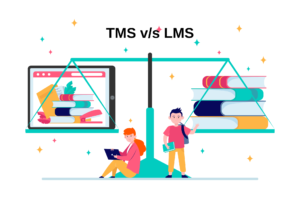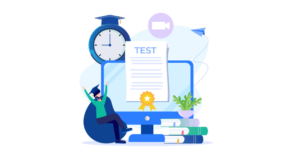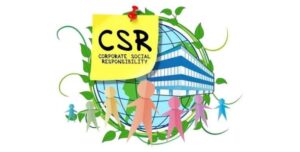As an NGO or organization, your goal is to make a positive impact on the world. Operational excellence is a critical factor for any organization, whether it be a nonprofit or a for-profit business. It involves the efficient and effective use of resources to create value for beneficiaries, stakeholders, and other constituents. NGOs and organizations that focus on operational excellence can enjoy greater success in achieving their goals and objectives. Using Littera, NGOs and Organisations can achieve operational excellence such as timely program delivery, data collection for impact assessment, increased learning experience, better utilization of critical resources like faculty/teachers, and more.

What is Operational Excellence?
Operational excellence is the process of optimizing an organization’s operations to achieve the best possible results. This involves identifying areas of improvement, streamlining processes, and implementing best practices to increase efficiency and reduce costs. For NGOs and other organizations, achieving operational excellence is critical for maximizing their impact and achieving their goals. By eliminating waste, improving processes, and increasing efficiency, organizations can do more with less and make a bigger difference in society.
Why is Operational Excellence Important for NGOs and Organizations?
Operational excellence is crucial for NGOs because it enables them to deliver more qualitative services, reach more people, and make a more significant impact on society. NGOs often operate in challenging environments, with limited resources and logistical constraints. By optimizing their processes and reducing waste, NGOs can free up resources to focus on their core mission. Operational excellence also helps NGOs to build trust with their stakeholders, including donors, beneficiaries, and partners, by demonstrating a commitment to delivering high-quality services.
Challenges Faced by NGOs and Organizations
However, achieving operational excellence can be challenging for NGOs and other organizations. These organizations often operate in complex and constantly evolving environments, and they face a wide range of operational challenges that can hinder their ability to achieve their goals. Some of the most common challenges include:
Limited Resources
NGOs and other organizations often operate on limited budgets and rely heavily on donations and grants to fund their operations. This makes it difficult to invest in technology, training, and process improvement initiatives.
Complex Operations
NGOs and other organizations often operate in complex and constantly evolving environments. This can make it challenging to manage teams and projects, coordinate activities, and ensure that everyone is in sync and working towards the same goals.
Regulatory Framework
NGOs often have to navigate complex regulatory frameworks of varied sponsors/donors, which can be time-consuming and resource-intensive. This further makes it challenging to implement standardized processes and systems.
Data Management
NGOs and other organizations need to collect and manage large amounts of data. This can be challenging without the right tools and resources, and it can make it difficult to track progress and make informed decisions.
Best Practices for Operational Excellence in NGOs
Despite the challenges, there are several best practices that NGOs can adopt to achieve operational excellence. These include:
1. Streamlining Administrative Processes
Administrative processes can be a significant drain on resources for NGOs. By streamlining administrative processes, NGOs can free up resources to focus on their core mission. This can involve automating manual processes, outsourcing non-core activities, and reducing bureaucracy. For example, some NGOs have implemented cloud-based software solutions to manage their training management & monitoring, finances, HR, and project management processes, which have helped to streamline their operations.
2. Leveraging Technology and Data
Technology can be a game-changer for NGOs, enabling them to operate more efficiently and effectively. By leveraging technology, NGOs can automate processes, communicate more effectively, and collect and analyze data to inform decision-making. For example, some NGOs have implemented digital tools to track and monitor their programs, enabling them to make data-driven decisions and optimize their impact.
3. Fostering a Culture of Continuous Improvement
Operational excellence is not a one-time event; it’s an ongoing process of improvement. NGOs can foster a culture of continuous improvement by encouraging staff to identify areas for improvement, experimenting with new approaches, and measuring and monitoring performance.
Case Studies of Successful NGOs Achieving Operational Excellence
Several NGOs have successfully achieved operational excellence by adopting best practices and leveraging technology and data. For example:
1. Oxfam
Oxfam is a global NGO that focuses on poverty alleviation and social justice. To achieve operational excellence, Oxfam has implemented a cloud-based ERP system, which has helped to streamline its financial and HR processes. The organization has also adopted a culture of continuous improvement, encouraging staff to identify areas for improvement and experiment with new approaches.
2. Save the Children
Save the Children is an international NGO that focuses on child rights and protection. To achieve operational excellence, Save the Children has implemented a digital program management system, which enables it to track and monitor its programs in real time. The organization has also adopted a data-driven approach, using data to inform decision-making and measure its impact.
How Littera Technology Can Help NGOs and Organizations Achieve Operational Excellence
Littera is a platform that provides NGOs/ Other organizations with how to achieve operational excellence & to achieve their goals, efficiently and effectively. Littera is a solution that empowers NGOs and other organizations to manage resources & budgets to achieve operational excellence and optimize their impact. With Littera, NGOs and other organizations can access a suite of tools and features that simplify everything from program management to fundraising, enabling them to focus on what matters & making a difference in the world.

Features and Benefits of Littera
Littera offers a wide range of features and benefits designed to help NGOs achieve operational excellence. Some of the key features and benefits of Littera include:
1. Cloud-based Software Solutions
Cloud-based software solutions can help NGOs to streamline their administrative processes and operate more efficiently. Using cloud-based solutions NGOs can increase their geographical reach and collaborate with team members and stakeholders with ease. Timetable/curriculum management, templates, and team collaboration, these features make it easy for organizations to stay on top of their operations and work toward their goals.
2. Quality Management Systems
Quality management systems can help NGOs to implement a structured approach to continuous improvement. Littera systems provide a framework for identifying areas for improvement, measuring performance, and implementing corrective actions.
3. Data Management and Analysis Tools
Data management and analysis tools can help NGOs to collect, analyze, and report on data for informed decision-making. These tools can include data collection platforms, data visualization tools, and data analysis.
The Benefits of Achieving Operational Excellence for NGOs and their Stakeholders
Achieving operational excellence can have several benefits for NGOs and their stakeholders.
1. Improved Efficiency and Effectiveness
Operational excellence can help NGOs to operate more efficiently and effectively, enabling them to deliver more services and make a greater impact on society.
2. Increased Transparency and Accountability
Operational excellence can help NGOs to build trust with their stakeholders, including donors, beneficiaries, and partners, by demonstrating a commitment to delivering high-quality services and being transparent and accountable.
3. Better Risk Management
Operational excellence can help NGOs to manage risks more effectively, by identifying and mitigating potential risks before they become major issues.
How to Measure Operational Excellence in NGOs
Measuring operational excellence in NGOs can be challenging, but there are several metrics that NGOs can use to assess their performance. These metrics can include:
1. Cost per Beneficiary
Cost per beneficiary can help NGOs to assess the efficiency of their programs and services, by calculating the cost of delivering services to each beneficiary.
2. Time to Deliver Services
Time to deliver services can help NGOs to assess the effectiveness of their processes, by measuring the time it takes to deliver services to beneficiaries.
3. Stakeholder Satisfaction
Stakeholder satisfaction can help NGOs to assess the quality of their services, by measuring the satisfaction levels of donors, beneficiaries, and partners.
Conclusion
Littera’s aim of this blog is to provide an overview of how NGOs and organizations can use modern technology to achieve operational excellence. We have seen that by leveraging the latest technology, organizations can increase efficiency, reduce costs, and enhance the quality of their services. By adopting the Littera Platform, NGOs/NPOs can enhance their efficiency, effectiveness, and impact, ultimately serving their mission more effectively and creating a greater positive change for their communities.








